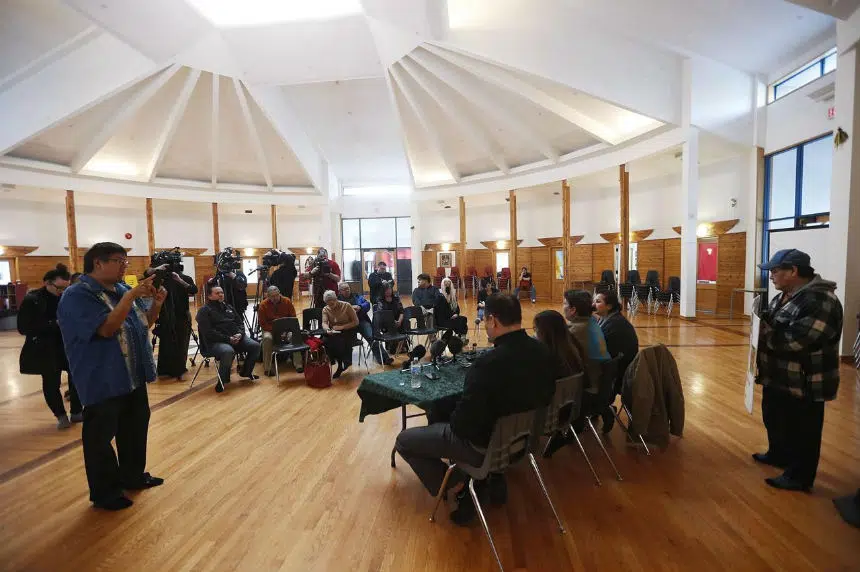SASKATOON — A federal judge has approved a multimillion-dollar settlement for Indigenous people who were taken from their families and placed in non-Indigenous foster homes in the so-called ’60s Scoop.
Justice Michel Shore made the ruling in Saskatoon after two days of hearings in which survivors spoke for and against the proposal.
The settlement includes $750 million for the survivors, $50 million for an Indigenous healing foundation and $75 million for legal fees.
Last October, the federal government said the proposed settlement was for about 20,000 survivors who were moved between 1951 and 1991.
Shore says he will issue his reasons for his ruling in a month or longer.
Lawyer Tony Merchant, whose firm represents some of the victims, says most of the people affected by the ’60s Scoop want to move on with their lives.
“It’s the right decision,” he said Friday.
“They wanted things to come to a conclusion and the people who wanted some change or said it could be better were overlooking the agony of the process, and the thousands of people with whom I’ve spoken over time — because this has been going on for nine years — say enough is enough.”
Coleen Rajotte is one of the survivors who isn’t happy with the settlement.
During the hearings, Rajotte argued that claimants will lose their right to sue the federal government if they accept the money.
She also said she doesn’t believe enough consultation was done prior to the proposal.
Rajotte wants the federal government to redo the process.
“I’d like to see meetings set up across the country where it’s well-advertised and adoptees could come out to public meetings,” Rajotte said.
“If they lived in remote communities, every chief and council should be written and full information packages should be dropped off at every band office across the country. Then, councillors could distribute it to adoptees and everyone should be informed in the best way possible.”
Anna Parent said she was taken from her home and adopted out in the 1950s.
She hoped to share her story at the hearings, but she said she wasn’t given adequate time to do so.
Shore noted during his opening remarks that the hearing was not the place to share stories, but rather an opportunity for victims to weigh in on the proposed settlement.
Merchant said it could be months before individual survivors can apply for compensation and the summer of 2019 before any money is paid out.
(CTV Saskatoon, The Canadian Press)







